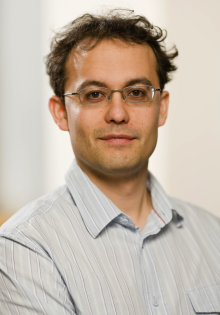Scientists from Paderborn University Publish Results in the Journal Nature Chemistry
Ions are found everywhere in nature. These electrically charged particles in atoms and molecules influence the folding and unfolding of proteins and enzymes, maintain chemical balances, are responsible for transmitting nerve signals, and determine the efficiency of electrochemical reactions. Strong interactions between ions and water molecules play a central role in most processes. One of these is known as solvation. It changes the physical and chemical properties of water, among other things. Until now, however, little was known about the exact processes that occur during solvation. Researchers at Paderborn University, the Fritz Haber Institute at the Max Planck Society, and The IMDEA nanoscience institute in Madrid, Spain, have now gained new insight into the phenomenon. They have published their findings in the well-known scientific journal Nature Chemistry.
Microscopic cause of solvation
“It is assumed that the microscopic cause of solvation has to do with the ion-based disruption of the hydrogen bond network in water. Our study offers microscopic views of this process by observing the energy conversion in salt solutions with time-resolved terahertz-Raman spectroscopy,” says participating scientist Dr. Vasileios Balos from the IMDEA nanoscience institute in Madrid. According to the chemist, the findings show that cations and anions change water’s intermolecular interactions. “We have determined that intermolecular energy transfer between water molecules, belonging in the first and second solvation shell of ions, is reinforced by highly charged cations, and drastically reduced by highly charged anions. The opposing effects of cations and anions on water’s intermolecular interactions are similar to the effects that ions have on the stabilization and denaturization of proteins,” continues Balos.
Extensive theoretical and experimental studies
Due to electrostatic interactions, ions disrupt the dynamics and the local structure of the hydrogen bond network in water. However, the actual extent of these effects is not yet fully understood, says Professor Thomas D. Kühne, a theoretical chemist at Paderborn University. “We carried out extensive theoretical and experimental studies, which would not have been possible without the new Noctua 2 supercomputer at the Paderborn Center for Parallel Computing (PC2), to gain a microscopic view of ion solvation. Because of the complexity of the underlying processes and the selective sensitivity of the chosen methods, the resulting images are still difficult to interpret and in many cases contradictory,” says the scientist.
Kühne sums up: “Our findings about the weakening of hydrogen bonds in the presence of strong anions could support an as-yet only theoretical mechanism for transmitting anion-induced protein stabilization through water. Less efficient energy transmission and weaker intermolecular water-water interactions could mean that strong anions transform the liquid into a ‘less effective solvent’, which, through folding, could cause the proteins to minimize the surface that is accessible for solvents.”
Original publication
Balos, V., Kaliannan, N.K., Elgabarty, H. et al. Time-resolved terahertz–Raman spectroscopy reveals that cations and anions distinctly modify intermolecular interactions of water. Nat. Chem. (2022). https://doi.org/10.1038/s41557-022-00977-2


